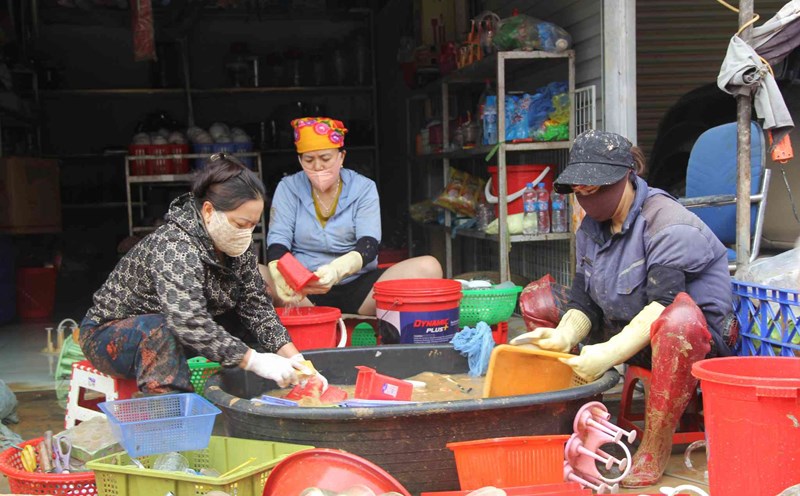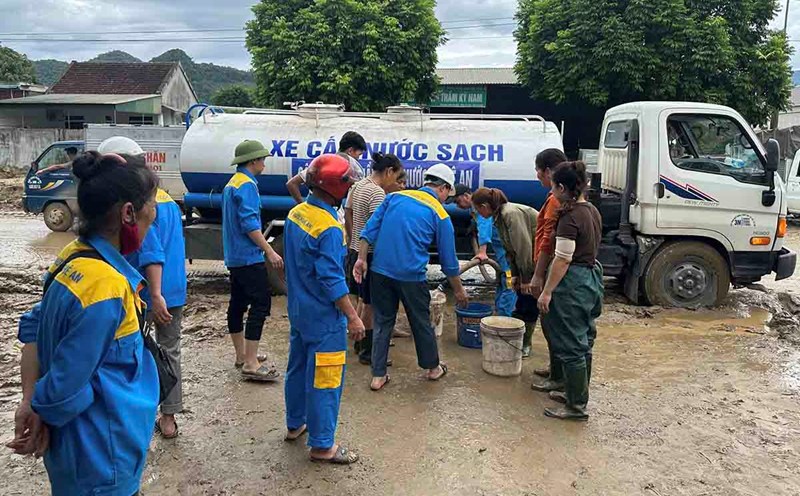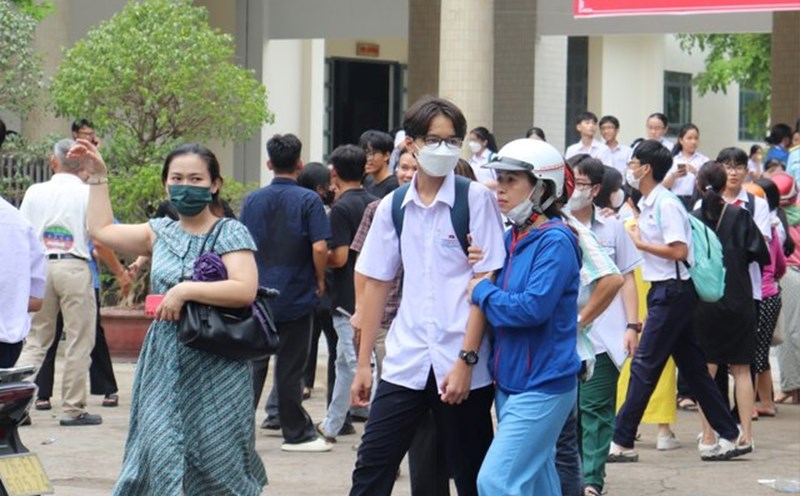Pollution after floods is becoming a major threat to public health. The Ministry of Health has just issued a warning about the risk of many dangerous infectious diseases if not controlled promptly.
After prolonged heavy rains, rising floodwaters swept away waste, animal carcasses and household waste, causing the living environment in many localities to be disrupted and seriously polluted. According to the Ministry of Health, this is an ideal condition for bacteria and viruses to thrive, especially in isolated areas with lack of clean water and unsanitary conditions.
Doctor Khong Minh Tuan - Deputy Director of the Hanoi Center for Disease Control (CDC) said that at this time, diseases such as dengue fever, acute diarrhea, seasonal flu, dermatitis, eye pain... tend to increase sharply due to polluted domestic water sources, poor sanitation conditions and humid weather.
After heavy rain, stagnant water for a long time is the breeding ground for monk fruit and mosquitoes that transmit dengue fever. Floodwaters carrying waste, animal manure, and toxic chemicals make water sources susceptible to infection, causing digestive and dermatological diseases. In particular, the risk of epidemics will increase if people have to live temporarily in poor and cramped conditions after natural disasters.
Dr. Hoang Minh Duc, Director of the Department of Prevention and Control (Ministry of Health) said that among diseases at risk of outbreak, welding is a disease that needs special attention. Floods and inundation cause environmental pollution, creating conditions for bacteria and viruses to grow and increasing the risk of many outbreaks, including welding.
The disease is caused by the typhoid Salmonella bacteria, transmitted through contaminated food, drinking water or contact with people. Infected people often have symptoms of prolonged high fever, digestive disorders, fatigue and may not have clear symptoms. Notably, both sick and healthy people carrying bacteria can eliminate bacteria into the environment, creating a risk of silent spread.
"People need to eat cooked food, drink boiled water, maintain personal hygiene and the living environment. Local authorities need to strengthen epidemic supervision in high-risk areas, improve water supply systems, waste treatment, prepare enough drugs and chemicals and step up epidemic prevention propaganda" - Dr. Hoang Minh Duc recommended.
Another hot spot is dengue fever, a dangerous infectious disease caused bysive mosquitoes transmitting dengue virus, which often flare up after heavy rain due to mosquito breeding in stagnant water ponds. The Ministry of Health recommends that families need to kill lentils, cover water containers, remove waste such as cans, bottles, tires and use screens during the day.
For skin diseases and red eye pain, people should limit prolonged exposure to flooded water, wash their hands and feet thoroughly with soap after walking and absolutely do not use a shared towel or sink to avoid cross-infection.
The Ministry of Health calls on people, when they have suspected symptoms such as high fever, prolonged diarrhea, red eyes, nausea, rash or body itching, to immediately go to the nearest medical facility for examination and treatment. Do not arbitrarily use drugs, infuse or apply unverified folk remedies because they can endanger life and spread the epidemic.
At the same time, local authorities need to strengthen epidemic supervision in high-risk areas, ensure water supply systems, waste treatment, adequate reserves of medicines and chemicals and promote communication on epidemics to proactively respond to the risk of outbreaks during this year's storm season.











